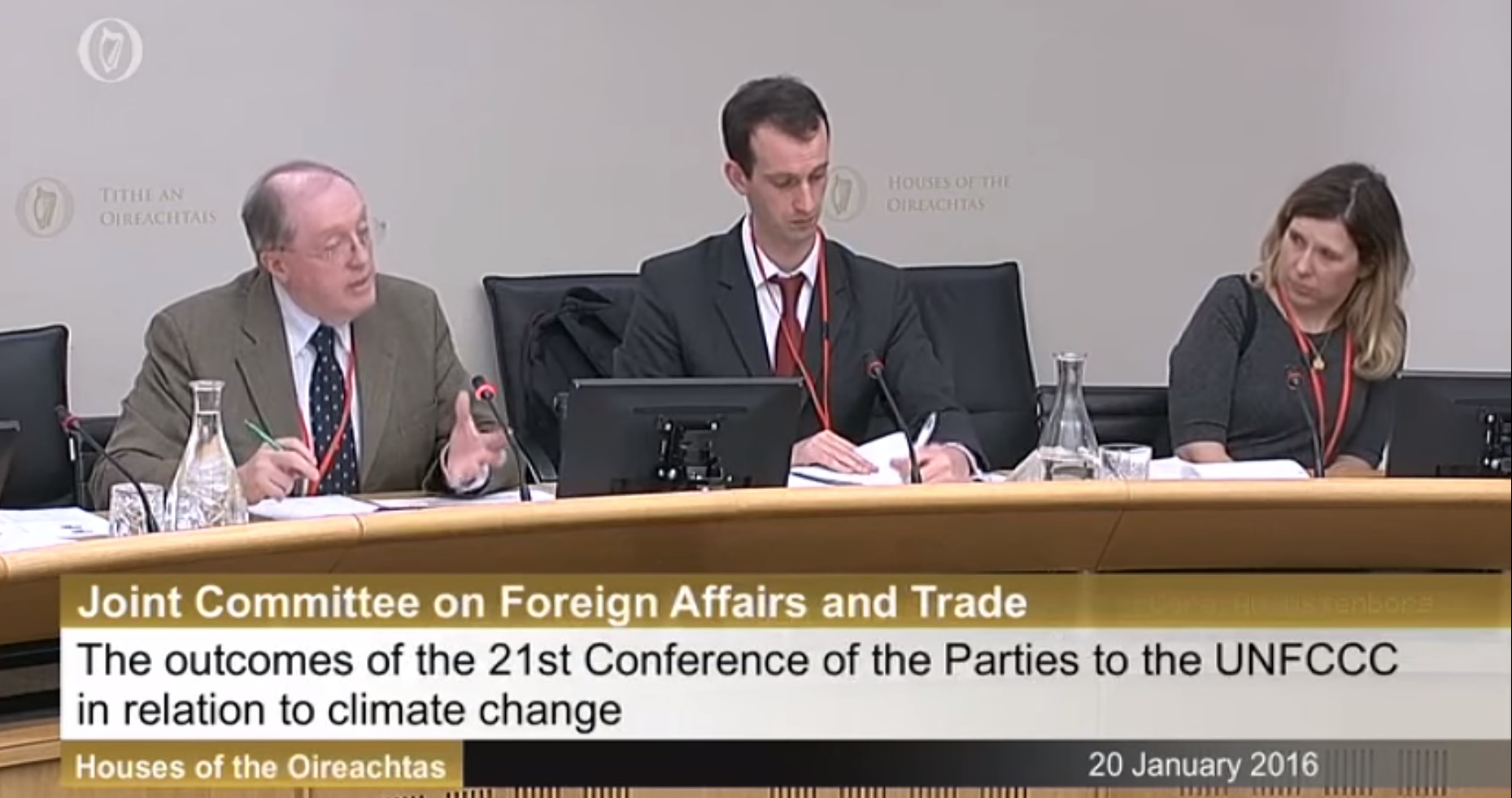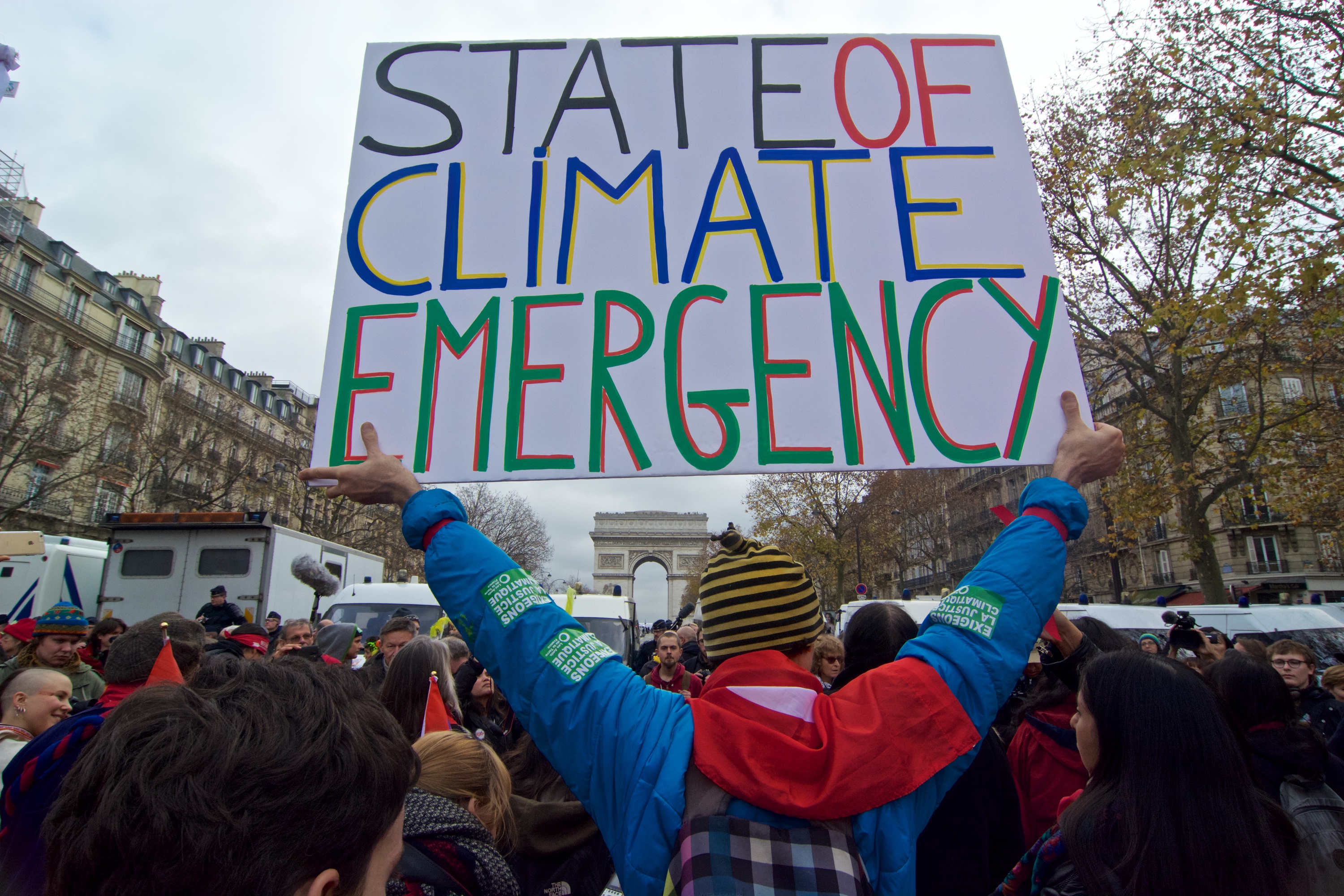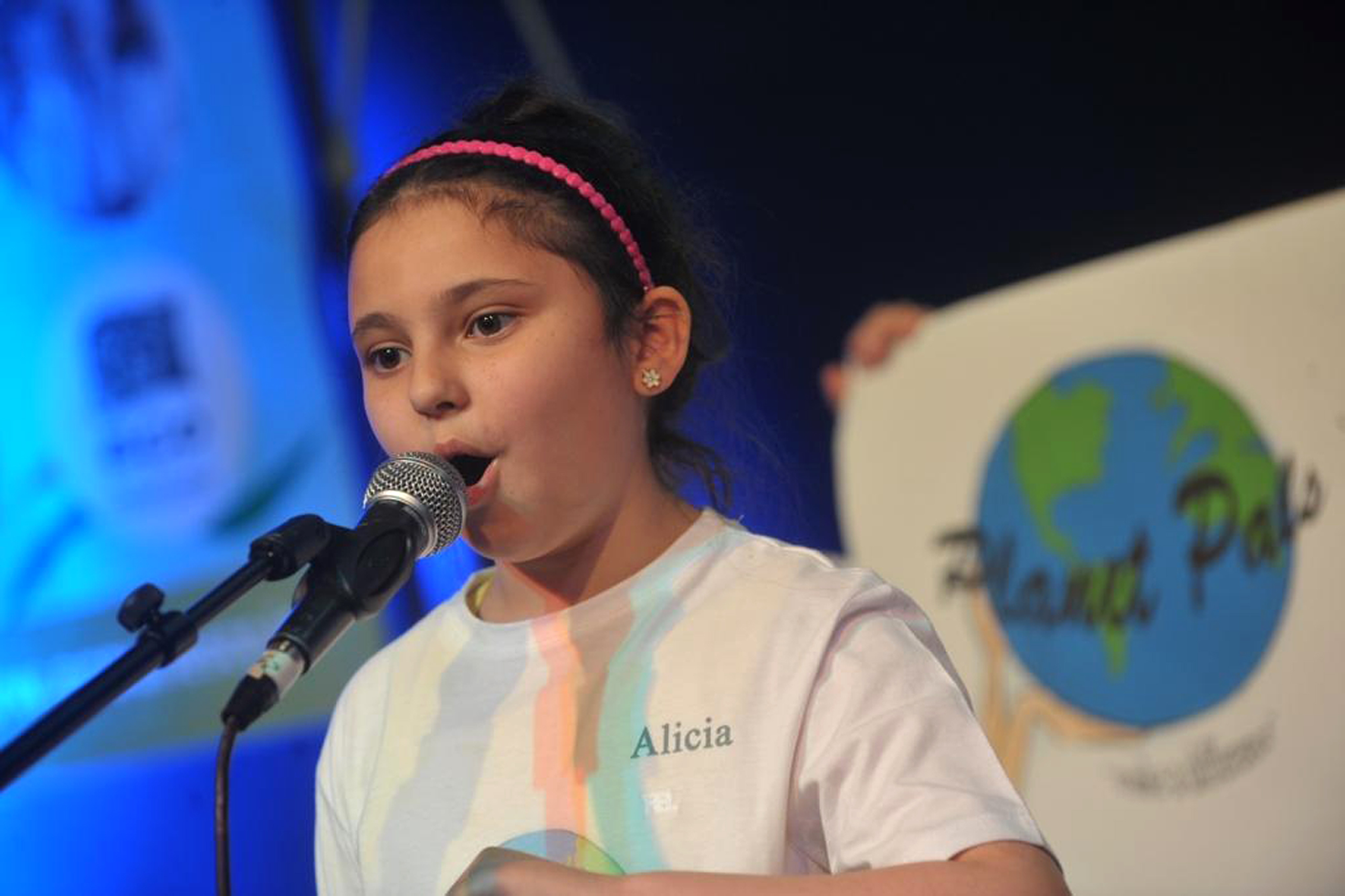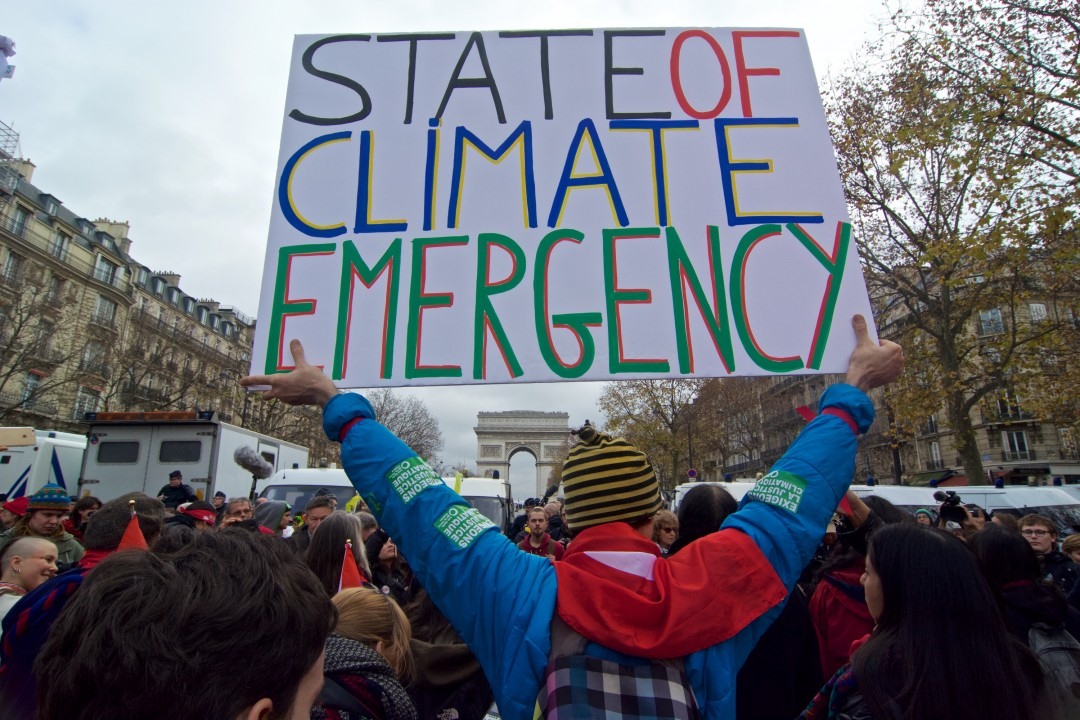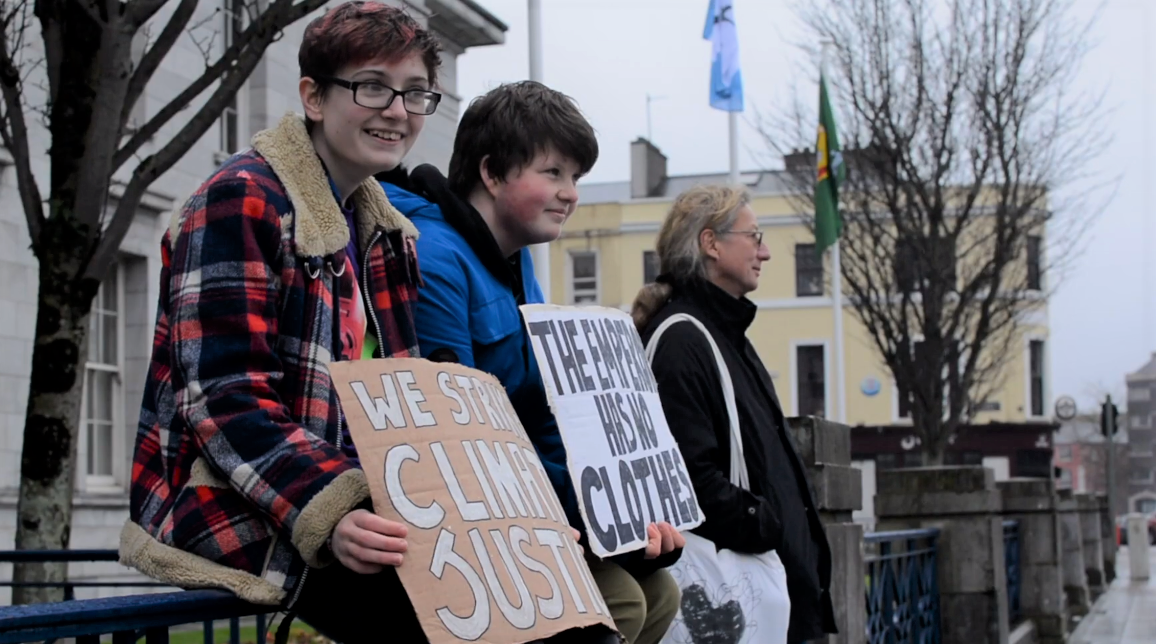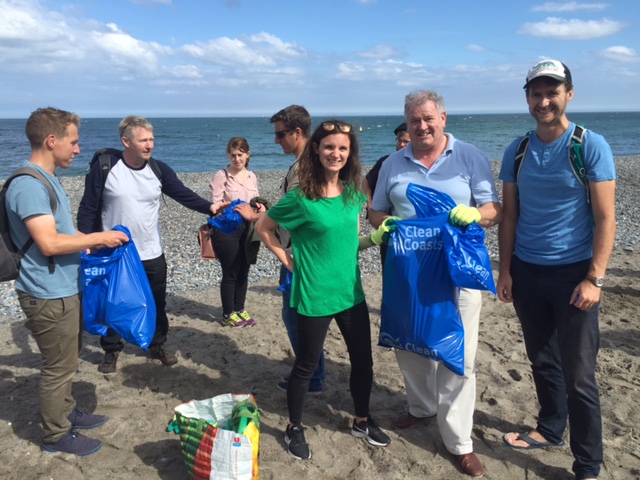Irish Government criticised for “singular failure to act” on climate pollution

Image: Dr Cara Augustenborg at Environment Ireland Conference. Mark Henry
September 23rd 2016
Environmental groups and development charities have slammed the lack of government action on climate change calling it Ireland’s “singular failure to act”.
Ahead of the Environment Ireland conference this week, the Stop Climate Chaos coalition highlighted the stark inaction of successive Irish governments which has put the country on the path to missing its climate targets.
Stop Climate Chaos is a coalition of environmental groups and development charities who are concerned about the impact of climate change both here and across the globe. Their members include Friends of the Earth, Trocaire, Concern, and An Taisce.
They pointed out that the the Environmental Protection Agency recently announced Ireland would fall 70% short of achieving its 2020 emissions target. Luxembourg is the only other EU member on track for failure. In fact, the Government still has no plan to reduce emissions, the National Climate Change Strategy expired in 2012 and has yet to be replaced. Rather than spurring action, this failure has been used by Ministers to make the case for an easier target for 2030. The European Commission has now caved in to the Government’s special pleading on behalf of big agri-business. The EU’s recent 2030 proposal would actually incentivise Ireland to increase emissions for the next two years.
In a press release they state: “The government’s efforts to achieve concessions regarding greenhouse gas emissions are inexcusable given the suffering caused by climate change today in the poorest countries. In Ethiopia, where per capita greenhouse gas emissions are 80 times lower than Ireland’s, 10 million people in that country – around twice the population of Ireland – are currently dependent on food aid due to persistent drought in a changing climate exacerbated by El Niño. These are the women and men on the frontline of a climate crisis they did not create. ”
Executive Director of Trocaire, Eamonn Meehan explained further:
“Fossil fuels are responsible for around two thirds of the emissions that are exacerbating poverty, hunger and inequality in the poorest countries as a result of climate change. The global fossil fuel divestment movement, the fastest growing movement of its kind in history, is focusing public and political attention on the reality that fossil fuels must be phased out without delay. Spearheaded by students calling on their universities to divest given the moral inconsistency of investing in industries that are undermining the future, the list of those committed to removing their money from the industry include major universities such as Glasgow and Dayton universities, European cities such as Copenhagen and Berlin, and even the Rockerfeller Brothers Fund – founded by one of the biggest oil families in the US. A swift, just and definitive move away from fossil fuels must be central to an urgent increase in Government action in Ireland to tackle climate change, starting with the divestment of public money currently being invested in the industry by the Government via the Irish Strategic Investment Fund.”
Failure to act in line with the commitments made in Paris last December will exacerbate a grave global injustice, but it is also not in the interest of Irish people.
Chairperson of Friends of the Earth Ireland, Dr. Cara Augustenborg, said:
“When you look at what a fossil fuel free Ireland would mean in our daily lives, you can see many of the things we need to do to reduce greenhouse gas emissions are also things that benefit our health, security, job prospects and quality of life. Ireland has agreed to achieve a low carbon transition by 2050, but our government’s actions to date are moving us in the opposite direction. This has serious implications for Ireland’s ability to remain competitive with the rest of the world. For example, this week, Solar 21 announced Ireland missed out on 80 of their new permanent jobs and possibly hundreds more because our renewable energy policies were not progressive enough. If we don’t start getting serious about making the transition to a low-carbon society soon, we risk our international reputation as well as our competitiveness.”
[x_author title=”About the Author”]
